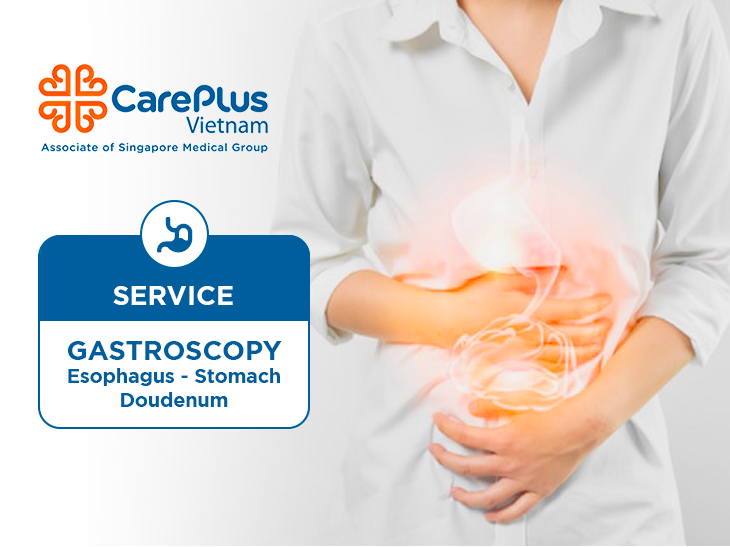Gastroscopy Service (Local Anaesthesia)

WHAT IS GASTROSCOPY?
Gastroscopy with local anaesthesia is a safe procedure that allows for direct observation and examination of the oesophagus, stomach, and duodenum using a flexible tube with a camera at its tip. Through the images provided by the endoscope, doctors can view, and assess the severity of the damage, diagnose lesions in the oesophagus, stomach, and duodenum, and recommend appropriate treatment methods as well as directly address the lesions.
WHO SHOULD UNDERGO GASTROSCOPY?
The indications for gastroscopy are quite extensive; nearly all patients suspected of having gastrointestinal issues or symptoms can be recommended for gastroscopy. In each case, doctors will assess the patient’s health condition and related factors to decide whether gastroscopy is necessary.
-
The recommended age for individuals at average risk to begin cancer screening with endoscopy is currently between 35 and 45 years old.
-
Having close family members (grandparents, parents, siblings) with gastrointestinal diseases such as oesophagal cancer, stomach cancer, or colorectal cancer.
-
Engaging in unhealthy lifestyle and dietary habits, such as frequent smoking, alcohol consumption, eating a lot of fried foods, or consuming spicy foods.
-
Factors that increase the risk of gastrointestinal cancer, include the presence of polyps, suffering from stomach or colon ulcers, or being infected with H. pylori bacteria.
DISEASES DETECTABLE BY GASTROSCOPY SERVICE:
Gastroscopy can detect upper gastrointestinal conditions such as esophagitis, gastroesophageal reflux disease (GERD), achalasia, peptic ulcers in the stomach and duodenum, gastric and duodenal polyps, functional dyspepsia, and determine the presence of H. pylori infection.
It also screens for complications like oesophagal and gastric varices in patients with cirrhosis and examines precancerous lesions in the stomach such as atrophic gastritis and intestinal metaplasia.
|
NOTES:
|
- Avoiding the use of blood thinners such as aspirin, clopidogrel, etc. This helps minimize the risk of bleeding during the surgical intervention. Patients should inform the doctors about any medications they are currently taking or have taken recently.